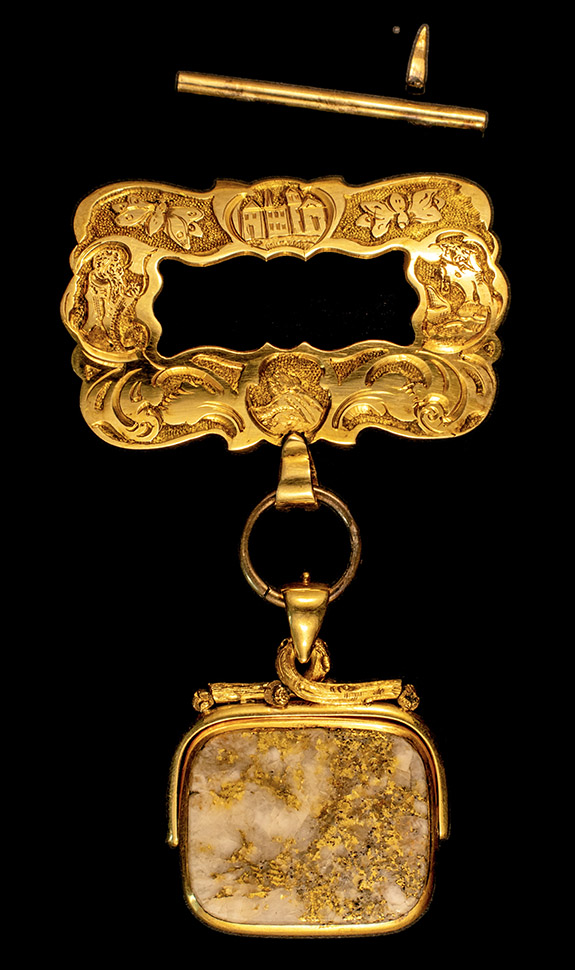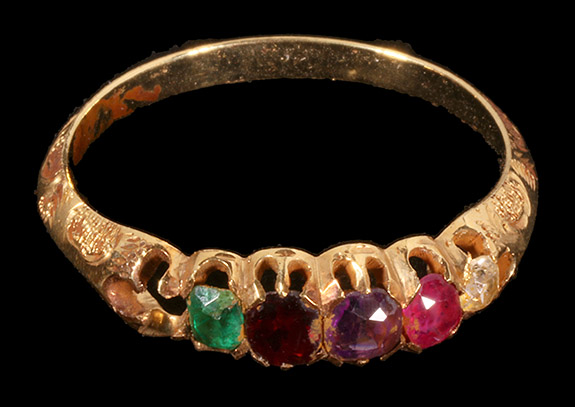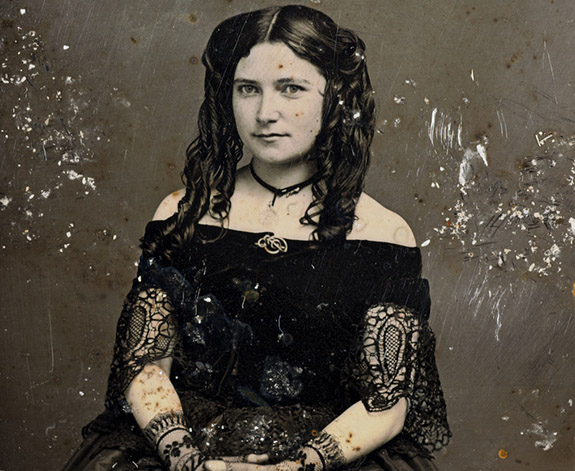Millionaire's Brooch Salvaged From 'Ship of Gold' Headlines Final Artifacts Auction
An elaborate gold brooch designed for California's first millionaire, Sam Brannan, will headline the final auction of historic Gold Rush jewelry and other artifacts recovered from the 1857 sinking of the fabled “Ship of Gold,” the S.S. Central America.
The large 18-karat brooch consists of a buckle-like piece at the top and gold-bearing white quartz on the bottom. The gold-speckled quartz is bezel set in a hinged mount so the stone can rotate on a horizontal axis to see both sides.
The piece, which carries a pre-sale high estimate of $100,000, will be offered by Holabird Western Americana Collections, LLC. The auction will be held on March 4 and 5 in Reno, NV.
Brannan had the brooch made at the request of his 12-year-old son, Sam Brannan, Jr., who was planning to gift it to his favorite teacher at the school he attended in Geneva, Switzerland.
The overall length of the brooch is 77 x 48 mm. The auction house noted that the presence of the buckle suggests that it may have held a colored ribbon of some sort which then draped behind and below the stone to highlight it. The back of the buckle is engraved “A. Roediger / from his little pupil / Sam Brannan Jr. / California.”
Neither Brannan nor his son were aboard the ill-fated ship. Historians believe the brooch was either in transit to Geneva by mail, by express service, or being carried by a personal friend of Brannan to be hand-delivered.
The Brannan Brooch and 30,000 pounds of Gold Rush-era treasure would fail to complete the trip from Panama to New York City. The S.S. Central America would succumb to a devastating hurricane, and all the Gold Rush-era treasure would end up 7,200 feet beneath the surface, about 200 miles off the coast of South Carolina.
Only 153 people of its 578 passengers survived the disaster. Headlines across the country declared the sinking of the 280-foot SS Central America as the country’s worst peacetime disaster at sea. For more than 130 years, the sunken side-wheeler and its cargo rested undisturbed in the Atlantic Ocean.
But, then in 1988 the ship was back in the news when an inventor named Tommy Thompson spearheaded a recovery operation, which involved exploring the ocean floor with a remotely operated vehicle named Nemo. Recovery efforts from the shipwreck site occurred in several stages between 1988-1991 and again in 2014, according to Fred Holabird, president of Holabird Western Americana Collections.
Among the 45 other recovered jewelry pieces offered in the final auction is a REGARD ring, named for the first letter of each of the six gemstones it contains: ruby (missing from the ring), emerald, garnet, amethyst, ruby and diamond. This style of ring became popular in the early 1800s when it was introduced in France.
“When I found this little ring — its stones flashing in the night — I was immediately charmed," said Bob Evans, Chief Scientist of the S.S. Central America Project. "I thought it could be a birthstone ring, intended as a mother’s representation of her children. Research by our historians ashore revealed the custom of the REGARD ring, intended as a gentleman’s token of affection for a lady, pre-engagement, but very serious.”
“This is the last opportunity for collectors to acquire previously unoffered, historic artifacts from what Life magazine proclaimed was ‘America’s greatest treasure,’" said Holabird. "The 420 lots in the auction represent an incredible time capsule of the California Gold Rush era."
Other recovered California Gold Rush jewelry in the auction includes gold nugget stickpins, gold nugget pinback brooches and gold cuff links. The auctioneers also pointed to an intriguing 1850s daguerreotype photograph of an unknown young woman now nicknamed “Mona Lisa of the Deep,” who is wearing a choker and brooch of the era.
All items in the auction are being offered unreserved. For additional information, visit Holabird Western Americana Collections of Reno, Nevada, at www.HolabirdAmericana.com.
Credits: All images courtesy of Holabird Western Americana Collections.









